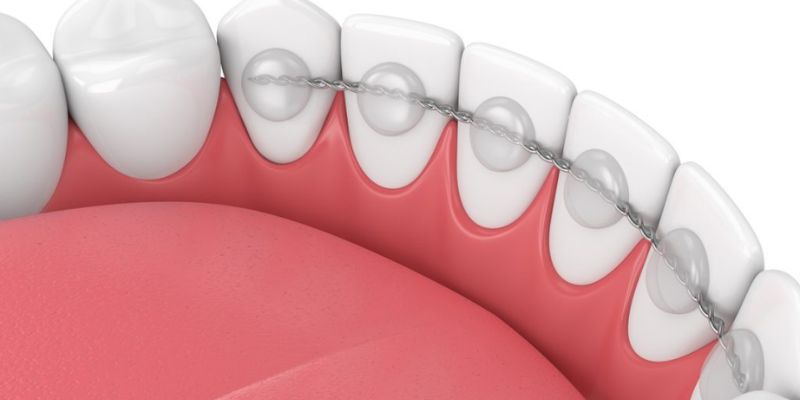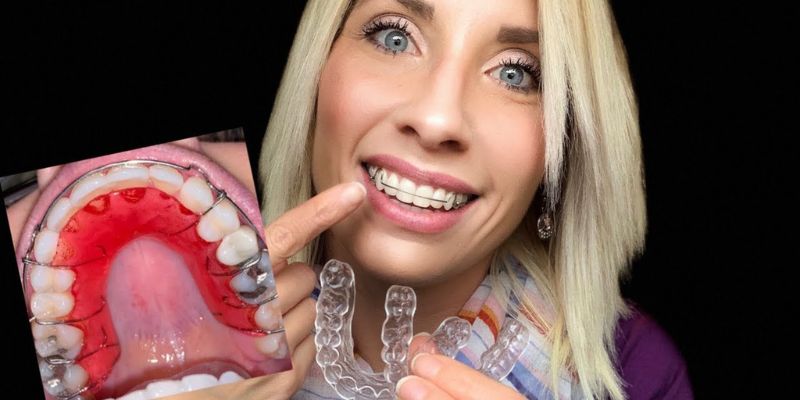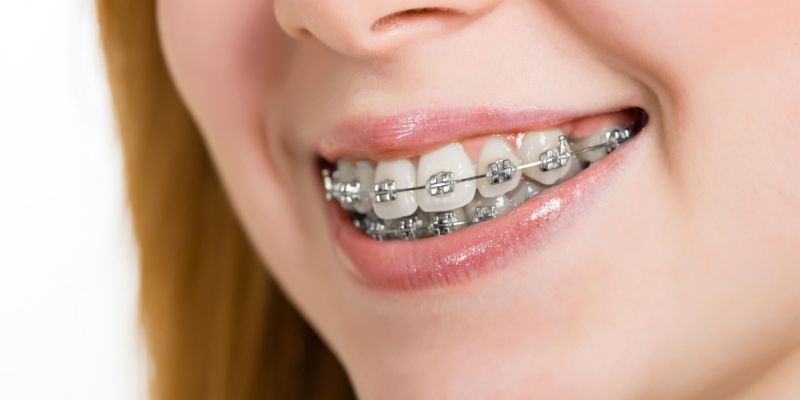You must wear orthodontic retainers to keep your newly arranged teeth after all the work you’ve put into enhancing your smile and maintaining your health and happiness. But since you’ll be wearing the retainers for years, it becomes sense to inquire about their expected lifespan.
The type of retainer your dentist recommends and how precisely it is fitted to your teeth could also influence the outcome. The following retainer types, factors, lifespans, and mishaps will help you gauge how long they will last:
Types of retainers
Orthodontists prescribe using retainers to sustain or protect the outcome of orthodontic treatment. Depending on the type of retainers you wear after wearing braces, your retainer can last very long. However, there are three main types of dental retainers; fixed or permanent retainers, acrylic or removable retainers, and Hawley retainers.
Fixed retainer
 A fixed retainer comprises a tiny piece of wire custom-made to bond to the back of a person’s teeth. It prevents your teeth from moving, and you can smile or speak without anyone noticing. Its longevity ranges from 5 to 10 years or even more.
A fixed retainer comprises a tiny piece of wire custom-made to bond to the back of a person’s teeth. It prevents your teeth from moving, and you can smile or speak without anyone noticing. Its longevity ranges from 5 to 10 years or even more.
Advantages
- Fixed retainers can last for decades if you maintain them well.
- You cannot lose them as they are bonded on the teeth permanently.
Disadvantages
- It is not easy to clean, brush and floss teeth with fixed retainers.
- You cannot eat some food as hard substances can affect the retainers.
The hawley retainer
 Hawley retainer consists of wires that fit to the base of the teeth. It keeps the teeth intact, and you can adjust them. They can help improve your alignment and generally last from 3 to10 years.
Hawley retainer consists of wires that fit to the base of the teeth. It keeps the teeth intact, and you can adjust them. They can help improve your alignment and generally last from 3 to10 years.
Advantages
- They are long-lasting.
- You can repair them or make them tighter when they begin to loosen.
- They are custom-made with varieties of colors and logos.
- They allow the teeth to take a comfortable position in the mouth.
Disadvantages
- The retainers do not cover the surface of the tooth. Therefore, they cannot protect the teeth from grinding.
- The teeth can shift slightly.
- They are more expensive to replace than other retainers.
- You can see the metal wires. Therefore, they are not discreet.
The clear retainer
Clear retainers look like clear aligners like acrylic or ceramic-made materials. They are typically made from vacuum-shaped plastics to fit the entire teeth closely and comfortably. However, like clear aligners, the retainer cannot last too long. Their longevity is around six months to a few years.
Advantages
- They hold the teeth firmly. They do not allow shifting.
- They can protect teeth from wearing off or from grinding.
- They are nearly invisible.
- They are less expensive to replace than other retainers.
- If slight shifting happens, you can wear them full-time to reposition the teeth.
Disadvantages
- They are not long-lasting like the other retainer options.
- You can easily lose them because of their clear appearance.
What factors can make your retainers last?
Each type of retainer can last longer depending on how well you care for them or how orally hygienic you are. Also, permanent and removable retainers can have several years of longevity if you clean your retainers carefully from time to time and avoid damaging them. Your removable retainers can have a lifespan of about 5-10 years, and your permanent retainers can last for decades.
The following are factors that can determine the longevity of your retainers:
- The stress you mount on the retainers when chewing food can put the metal wire under pressure.
- How well your dentist places the retainers can determine their longevity. So, if your dentist lacks precision while fixing the retainers, it will be difficult for you to brush and floss easily, resulting in less life span.
- While some people can fix retainers for some years, others found their retainers lasted only several months.
How can you care for your retainers to make it last?
1. When brushing and flossing, do it around the fixed retainers. Like typical braces, the wires can trap food and build up to plaques that can lead to tooth decay. Therefore, oral hygiene is essential. Also, keeping on with frequent dental appointments can help you, as your dentist can help you clean the area and protect you from cavities.
2. Ensure that you place your removable retainers back in their case whenever you are not putting them on. Someone can throw them away by mistake if you place them on a tissue or napkin while eating out.
3. For pet owners, try as much as possible to protect your orthodontic retainers from your pets. They love playing with retainers, and if you fail to store them in their case after taking them off to floss, eat or brush, your pets can damage them.
4. Eating with your retainer in your mouth is wrong. Like clear aligners, you must take the retainers out before eating and drinking all food except ordinary water. Even if you are taking a tiny sip of drink from your glass, it is still essential to remove the retainers. Sugary drinks can get stuck on the retainers and your teeth and wreak damaging dental havoc in the tooth cavity.
5. You can clean the retainers like your daily oral hygiene, by brushing slowly with a non-abrasive toothpaste and a soft-bristled toothbrush. Cleaning your retainers can help in removing accumulated plaques. However, you can visit your dentist for deeper cleaning or allow the retainer to soak in a cleaning agent to eliminate unpleasant smells and debris buildup.
6. Storing your clear retainers in a heated vehicle can cause them to warp off. Also, taking hot drinks with your retainers can damage them. Once the retainer is damaged, it will no longer fit in, causing your teeth to move out of position.
7. Contact your dentist immediately if you lose your retainers, and get them replaced. A few nights without your retainers can cause your teeth to shift. So, be conscious about your retainers and get a new one to sustain your smile.
Conclusion
Fixing your grin is the finest technique to maintain your self-assurance in it. But you cannot stop there; you need to go one step farther and keep your grin with a retainer.


